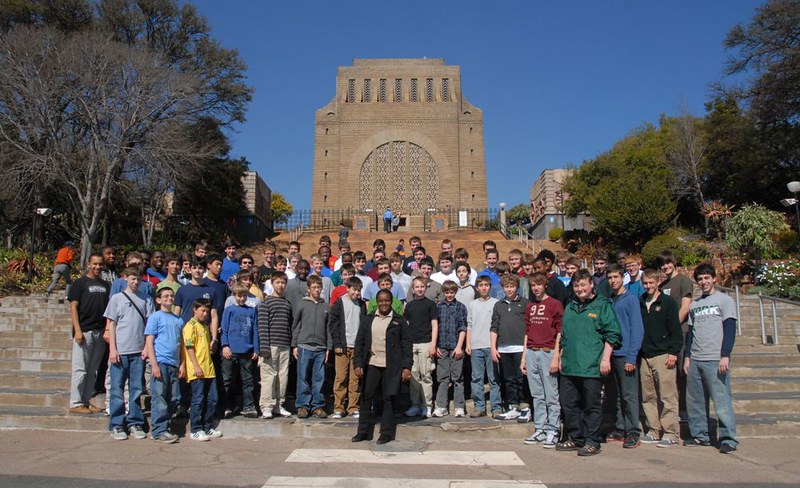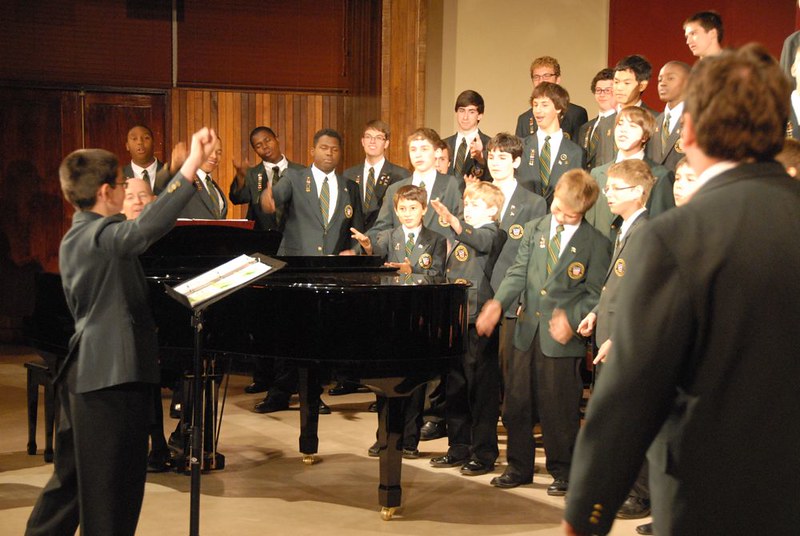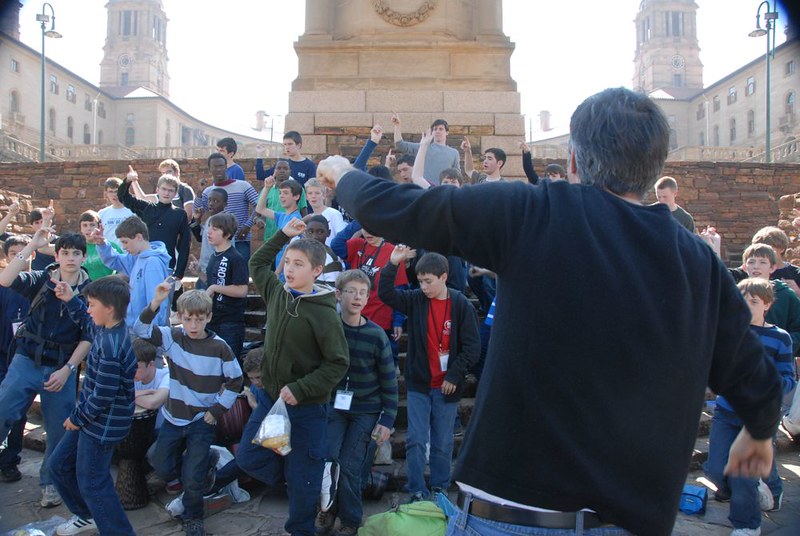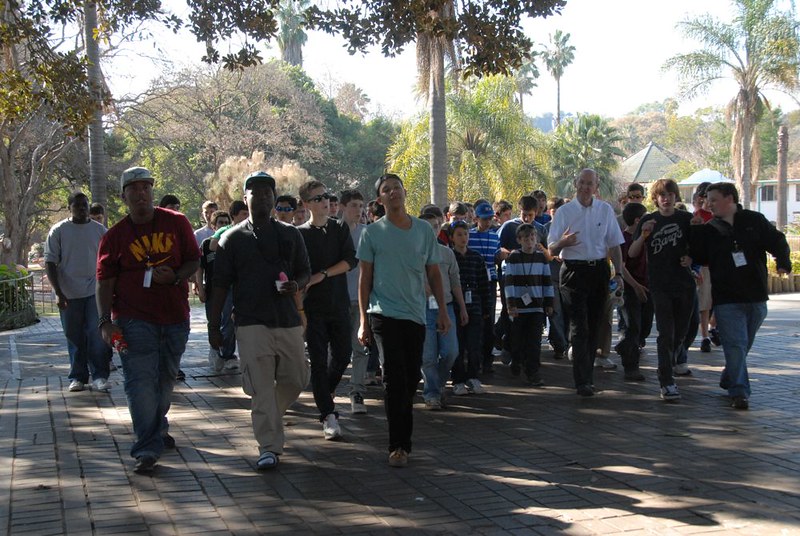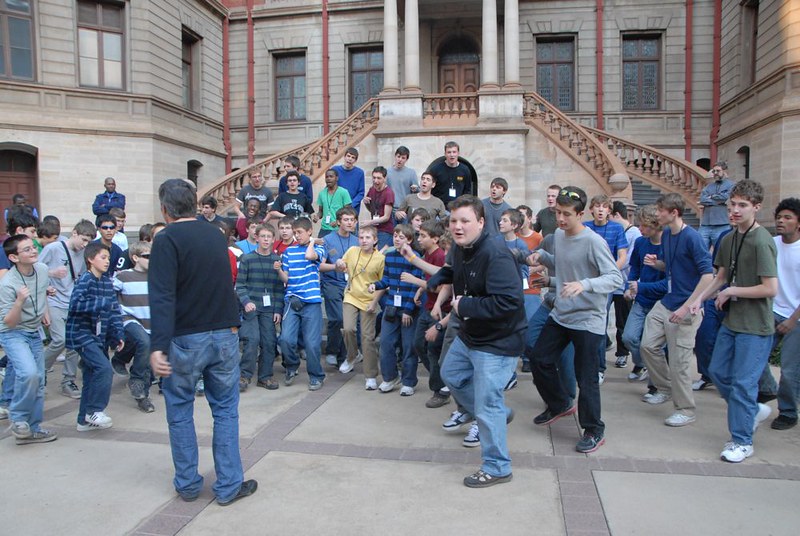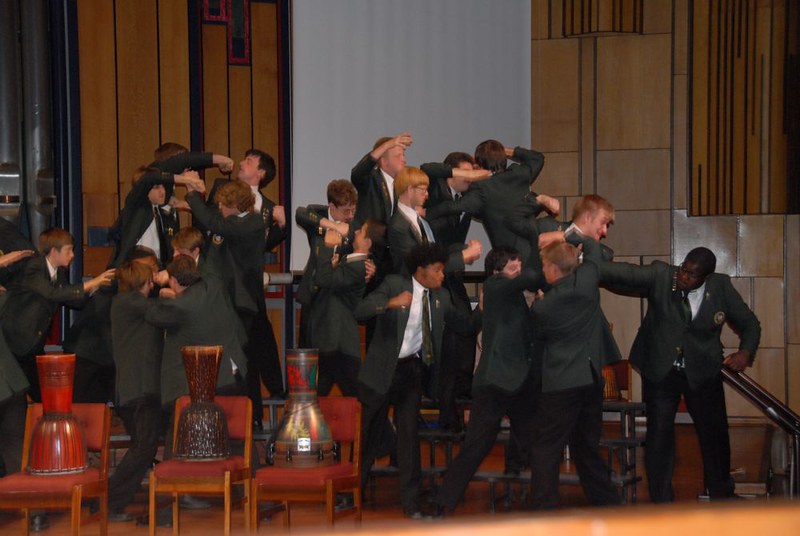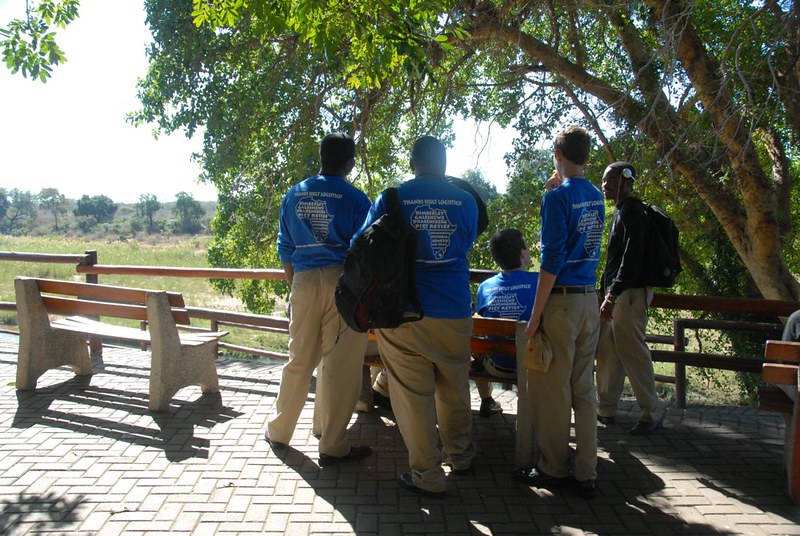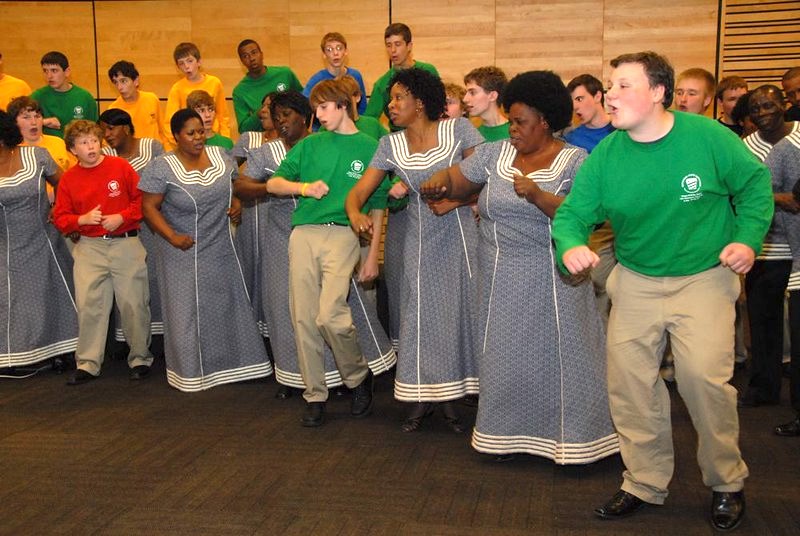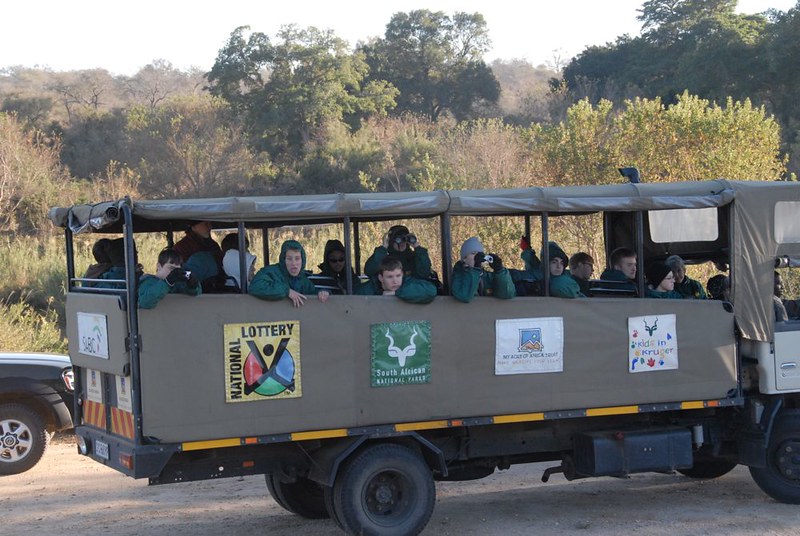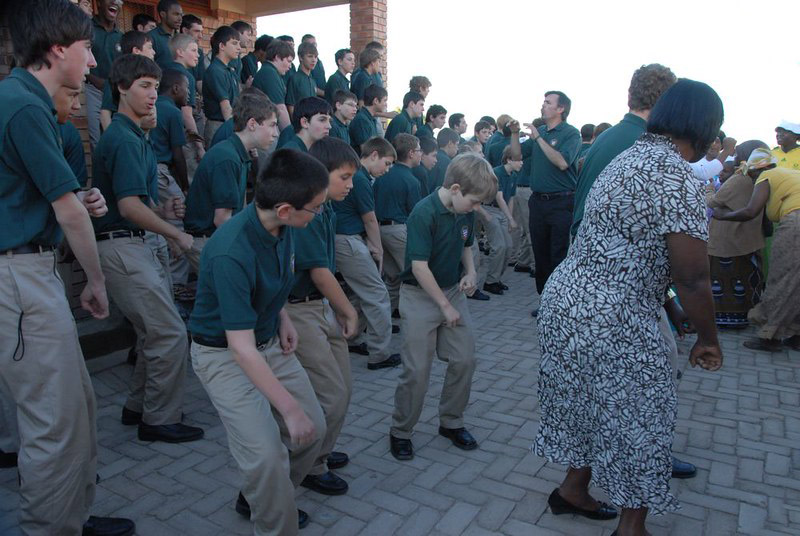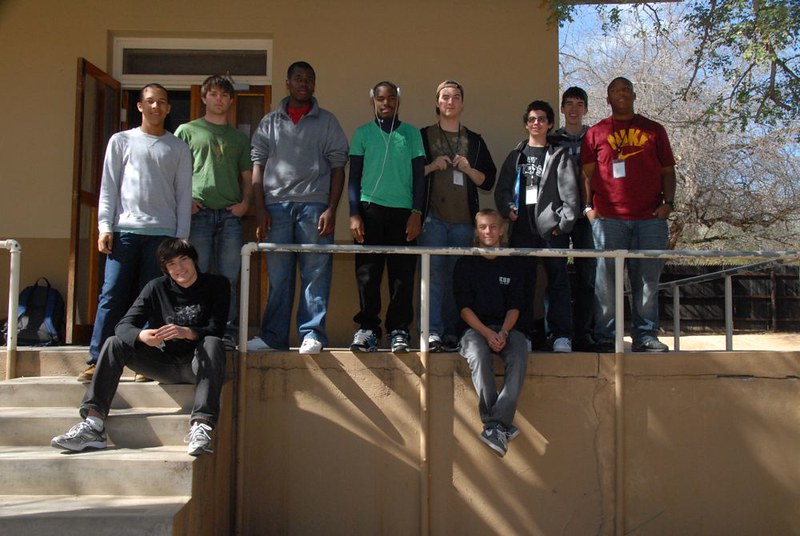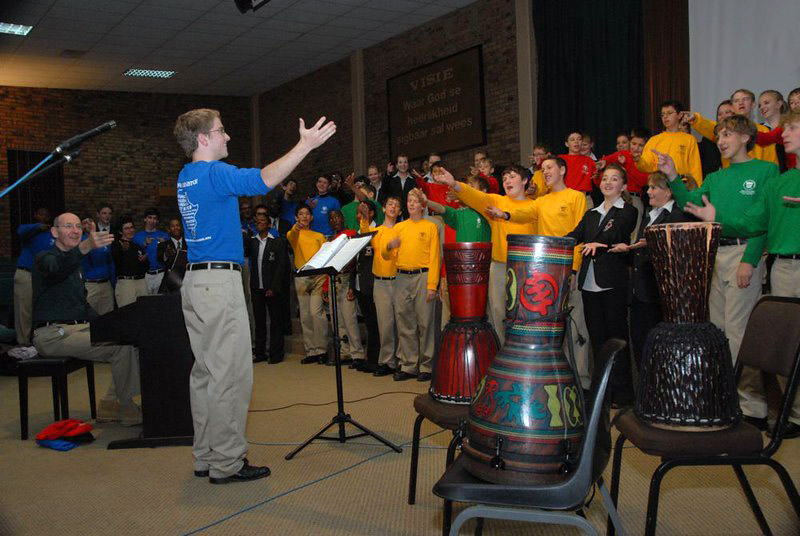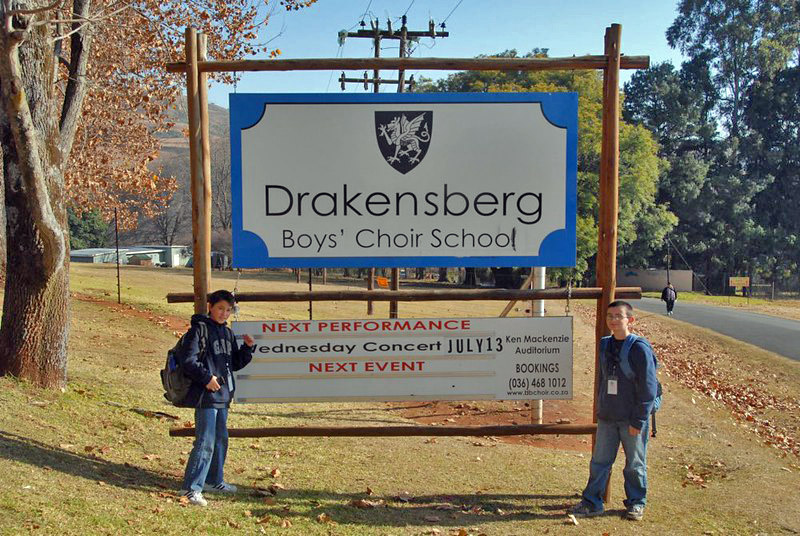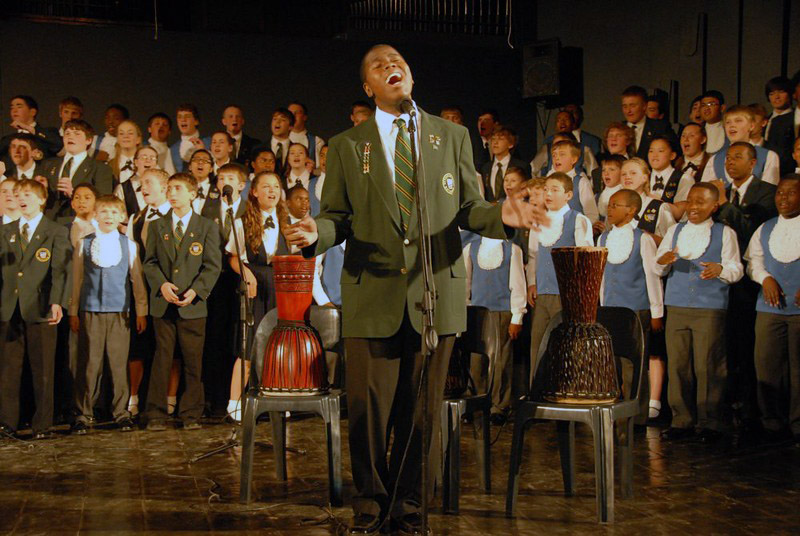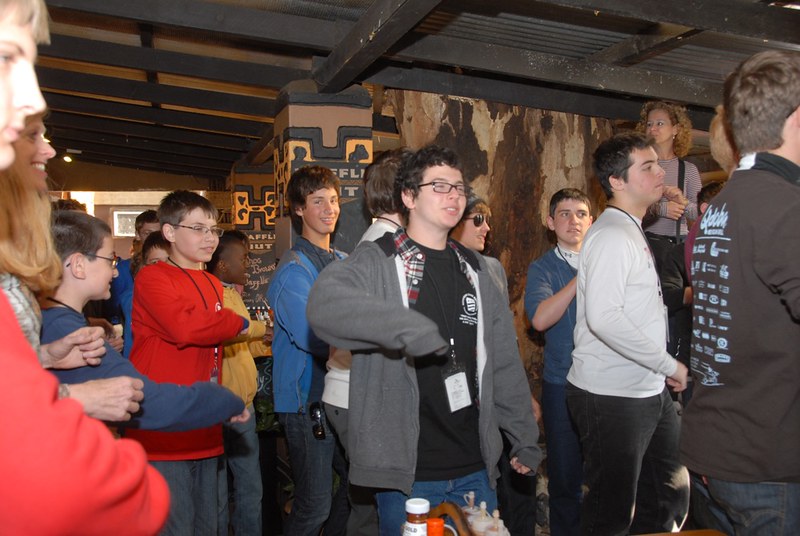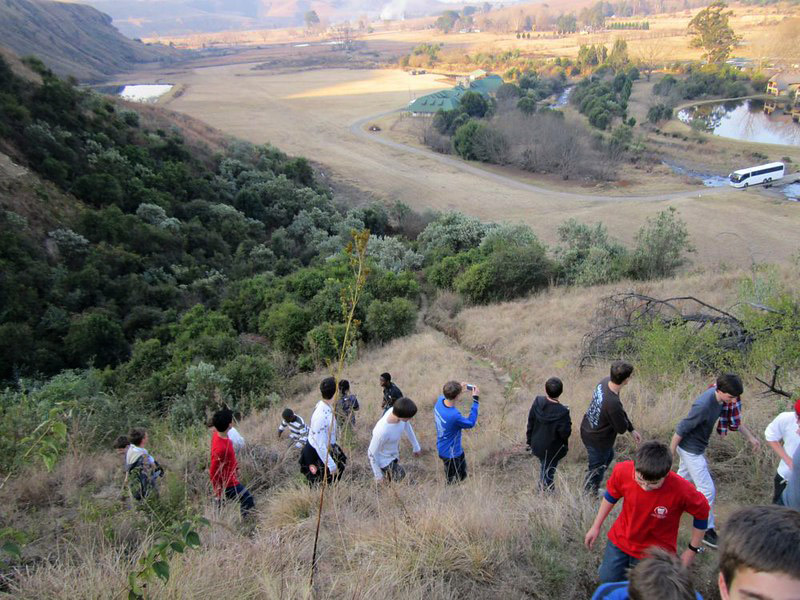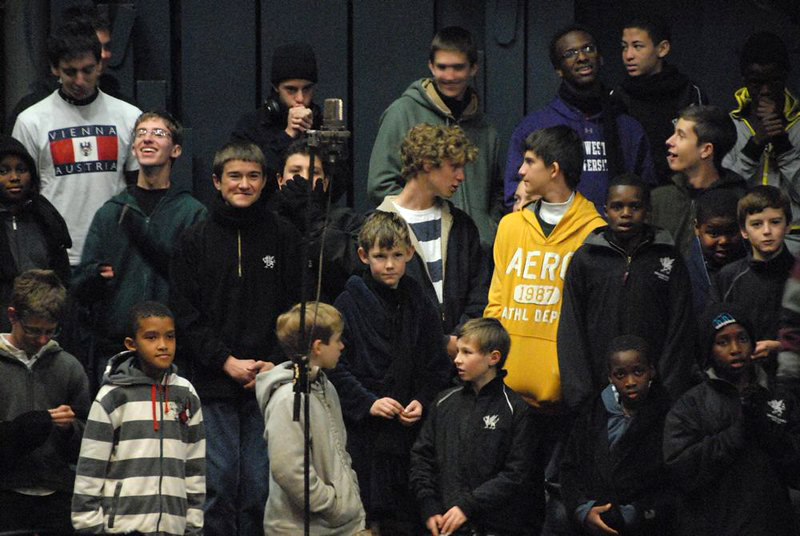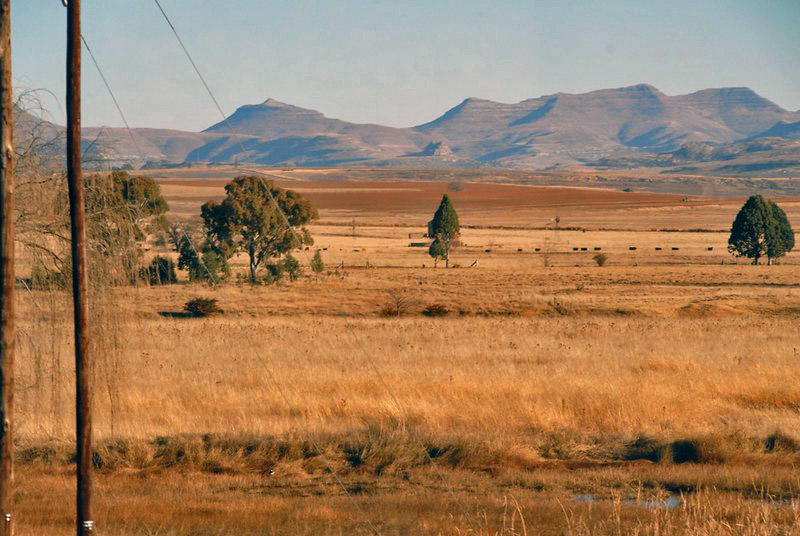Marge Copeland
A Eulogy
First a few thank you’s. To Father Riceo, Ken Rowe, and St. Francis of Assisi Church, Marge’s parish for 70 years. To our dear family friend Lisa who cantered, and to Susan Ashbaker and Alex Bessen, who represents the Keystone State Boychoir here today. Special thanks to the nurses and aides who cared for Marge these last few years, including Vivian and Ruth, and especially Linda and her husband John. And of course, the family is grateful to Marge’s three daughters, Peggy, Kathy, and Suzanne, who so lovingly, in their own unique way, cared for her. They ushered their mother out of life just as she had lovingly ushered them into life. A personal note of thanks to my father John and sister Diane who were faithful to Nana day in and day out for so long. Finally, thanks to my family, Marc and Julianna, for being here in my absence.
I am so sorry I can’t be with you today. Very few things on earth could keep me from my dear grandmother’s funeral. But I am in South Africa on a concert tour, charged with the safety and well being of 68 children. I hope Nana is looking down on me “from a distance” with understanding. Although, knowing Nana, I’m not completely sure. I can almost hear her: “Now wait, now wait, now wait. Steven, listen to your Grandmother. Family comes first.” That’s is how Nana lived her life – with family at its center.
I learned of Nana’s passing just a few hours after it happened. I hadn’t called home since departing the States, and something told me to call. It was Nana whispering in my ear. I was in a little town in South Africa called, of all things, Bethlehem. A word that brings to mind not death, but birth. Of course the two go hand in hand. I know Nana is in heaven, reborn, free from the struggle that she faced at the tail end of her life. What a full life it was! Not only did she lead a wonderful one, but she enriched the lives of her family in so many ways. What I loved was her stories. Each one had a life lesson. I’m not sure Nana realized it, but her stories taught me so much. You can’t sum up a life in a few minutes, but I will try.
Margaret Catherine, affectionately called Marge, was born on April 29th, 1917. She grew up in the Kensington section of Philadelphia with her beloved sister Catherine – forever known to my generation as “Aunt Catherine.” A question remains. Who’s older? Nana or Aunt Catherine? Nana insisted she was the younger. Eventually we learned that Nana was in fact older, but there’s still a bit of doubt in my mind to this day, as Nana was so earnest in her claim. Marge also had two brothers: John and Jimmy. I remember well parties up at Uncle Jimmy and Aunt Helen’s house. Jimmy, like all the Dornish’s, was a real character. We’re still waiting for a ride on his yacht. Another remaining question: did Uncle Jimmy even have boat? Life lesson: Lying about your age or your yacht is at a family party is perfectly okay. Nana loved her parties and her Manhattans. She told me a while ago that she wanted us to have a good cry at her funeral and then have a Manhattan for her. Life lesson: A cocktail is one of the great joys of life.
Upon graduating from eighth grade, Grandmom Dornish told Marge in no uncertain terms that when her father asked her if she wanted to go to work or continue with high school, to choose the latter. Most girls in those days, including Nana, didn’t see much use for a high school diploma, and wanted instead to go out and make money. But dutifully, Marge went off to Hallahan Catholic High School for girls. Looking back, she was glad she did, and was always proud of her high school education and grateful that Grandmom Dornish insisted. Life lesson: listen to your mother. Whenever there was a conflict in the family, Nana always felt it was the younger person’s responsibility to extend the olive branch to the older person. Right is right and wrong is wrong she would say. Life lesson: Respect your elders even if they’re imperfect.
Sometime after graduating from high school, Marge met the love of her life – Raymond Copeland – at the Adelphi Roller Skating rink. Ray was skating with Nana’s friend Mary. But then Mary suggested a trio. Meaning, three people skating at the same time. As you may have guessed, Mary got the short end of that stick. The rest is history. It was the beginning of a great love affair. Their skating and dancing brought them great joy throughout their lives, as it did to all of us who ever witnessed them in action. Such grace. Remember the West End Boat Club? I felt like we were royalty as the grandchildren of the Marge and Ray. Life lesson: It’s okay to steal your friend’s beaux, but only if you’re sure it’s you soul mate. Marge and Ray certainly were that. They were totally devoted to each other. Like all couples they bickered, but their love to each other was unshakable. Oh, and Nana was the jealous type. No matter how many years had passed, she was never amused by the fact that Pop danced with a French woman or two in Europe. Ray Copeland was her dance partner, and her’s alone.
Nana told me that when she and Ray were “courting” they couldn’t afford to go out on dates, so they would sit on her front porch at night. She said that when you’re in love, it doesn’t matter what you’re doing if you’re together. When things would get a little too “friendly” on the porch (Nana called it ‘necking’), apparently Grandmom Dornish would tap her shoe on the floor of her bedroom, which was above the porch where they sat. Nana said Pop knew it was time to propose when one night, as their passion flaired on the porch, one of Grandmom Dornish’s shoes came flying down the stairs onto the porch. Life lesson: You don’t need a lot of money to have fun with your soul mate, but if you want to really have fun, you better put a ring on it.
Nana was a hard worker. During high school she worked at Philco during the summers. After high school, she went on to work for Sears and Roebuck. And she was smart. Before she left Sears she had 22 girls under her supervision. I often wonder, if she had grown up at a different time, what she might have become. Not that Nana wanted more from life. She was wholly satisfied with her lot.
Nana was the boss. Just ask Pop. She certainly was the boss when it came to money. When it came to money, Marge not only wore the pants, but shirt, tie, and jacket. She was a saver. The $4,600 she put aside from Sears – an extraordinary amount of money in those days – was used for a down payment on their first and only house. 109 Wayne Avenue. Her insistence on saving money allowed her and Pop to have a wonderful retirement with lots of great trips. Life lesson: Put something away every paycheck. “Even if it’s 50 cents,” she used to say.
Nana could be frugal, but could also be incredibly generous. Every year down the shore she would give her three daughters money to treat their families to something special. Who can forget the summer she lost the $3,000 she was going to give to her girls. She was sick about it, but it didn’t stop her from giving her daughters the spending money anyway. You could always come to Nana for a loan. I’m sure every single grandchild at some stage borrowed money from ole Nan. She was good for it. But she wanted you to pay it back. She’d say, “that way, I’ll have money when you come back for another loan.” Life lesson: If you borrow something, give it back. And always pay your own way.
Marge was strong. We certainly saw that as she held onto life, and held on, and held on, and held on. She gave birth to their first born, Peggy, alone, because Ray was down South in boot camp during World War II. Pop saw baby Peggy briefly and then went off to Germany. Marge kept the home fires burning until he returned. Then came Kathy and Suzanne. Nana would recount how she dressed all three girls each afternoon, would greet Pop Pop at the trolley after work, and then sit up for dinner. Every night. That’s just the way it was back then. Life lesson: Sit up to dinner with your family.
When Pop went on strike, Marge again went out to work. Delaware County Memorial Hospital. When they interviewed her, they said she was a little too old to hire – it was the 1950’s – you could say that. But Marge pleaded, and so they gave her a shot. Life lesson: Be persistent.
She proved a terrific worker in the records department. Years later, when computers were first being introduced, the hospital told Marge they’d have to let her go for younger people “more apt for the new technology.” Nana’s response: “teach me, I can learn.” And so they did and so she did. Life lesson: Don’t be afraid of change or learning something new.
Nana was a good friend. Her dearest one was Doris Mason. They raised their families together, just two doors apart. She liked to say that Doris and she never had a fight. “What was the secret to a successful friendship?,” I asked one time. Nana said it was because they lived two doors apart rather than right next store. Life lesson: Fences make good neighbors. Nana said her and Doris laugh a lot, never held grudges, kept a secret, and always respected each other’s privacy.
Through the over 50’s club and her Canasta group, Nana had many friends. People loved Marge. And she loved people. But at the end of the day, it was her and Ray. A couple in every sense of the word. In the best sense of the word. Life lesson: There’s nothing more valuable than a good friend; and at the end of the day, your partner is your best friend.
Like most families, the holidays were spent with Nana and Pop Pop. Christmas rotated between the three daughters. It always made the holiday extra special when you learned that this year was your families turn to have Nana and Pop. We were always a bit deflated to learn that it was another families turn. After dinner, the Fishers, Gallaghers, and Dunderdales would gather at Nana’s for dessert. There we would get the Christmas envelope. It was not a lot of money, but it was tradition. And if a family friend joined us for dessert, there was always an envelope for them. Everyone was welcome at Nana’s, everyone part of the family.
Easter dinner was always at Nana’s house. We used to joke and even complain that it was the same menu every year. Ham, Turkey, potato salad, and of course Mrs. Dunderdale’s coconut Easter bunny cake. What we wouldn’t do now for one more Easter dinner at Nan’s. And one more Easter hunt. There was even less money in the eggs than there were in the Christmas envelopes. But even as we got older, we loved the tradition. Quite a sight, college students running around for dollar-filled eggs.
Nana was strict. As kids, when we learned that Nana was coming to watch us while our parents were going away for a weekend, we were not happy. She didn’t take any nonsense. She’d threaten: “no fussin’ or you’ll get a lickin.” Of course she never did give us a lickin’, but the fear was enough to keep us in line. The three sisters say she was even stricter as a Mom. We found that hard to imagine. But you always knew Nana loved you, and she obviously knew what she was doing, evidenced by the wonderful daughters she raised.
A Eulogy about Nan would not be complete without mentioning “the shore.” Nana instilled in all of us a love for the shore that carries on to this day. The list of shore traditions are too many to mention all of them. But they all can be traced back to her and her generation. Crabbing, Hor d’ourves night, the boardwalk, donuts in the morning, and the grand daddy of them all – Groffs. Nana went there as a child herself, and now, three generations later, we all still go, faithfully. I’m sure there will be a fourth and a fifth generation. Great portions, great price, great food. And those pies! As long as we’re still eating at Groffs, we’ll never forget about Marge. The two are one in the same.
A shore tradition I associate strongly with Nana is Kohr’s ice cream. As children, she would buy us one, but she wouldn’t buy herself one. Instead, she would as for a lick from each of us. Well a lick from Nana was half the cone. I soon learned to get our ice cream and then stay as far as away from Nana as possible. Another favorite memory was seeing her and Pop sleep in the same twin bed. Beds were always short, and Nana would say, we don’t mind at all.
Nana was not one to talk about death. She feared it, as most of us do. When it would come up, she would change the subject. But the last time I saw her, the day before I left for my trip, the fear was gone. I knew it would be long. When I told her I was going a way for a while, she asked for how long. When I told her three weeks, her reply was, “well we should talk then.”
First she told me to kiss her. I did, and then she said, “that was nice, how ‘bout twice?” So I did again. She commented how wonderful everyone has been and thanked me. I told her it was us who should be thanking her. She told me that she was tired, and I told her that she could go whenever she was ready, that she had done real good. She asked, “do you think?” I replied, “I know you did.” She told us to take care of Ray. I told her we would, that that’s what families do is take care of each other, and that she had taught us all that. She then instructed us to let Pop wipe the counters as much as he wanted – that it would “keep him busy.” If you don’t know, Nana would often chide Pop for wiping the counters too often.
We sat for a while in silence and then I thought she said again, “Kiss me.” I said, “you want more kisses.” And she said, “no MISS ME.” I started to cry, but she did not. She just gazed at me, lovingly, with no sadness. And then she went on to say it several times. “Miss me. Miss me. Miss me.” I told her I would. That we all would, every day. That we could carry her in our hearts always. More silence. And then, the most extraordinary thing happened. Out of nowhere, she sang ten words. “I’ll be seeing you, in all the old familiar places.” Neither of us could remember the rest of the song, so we just hummed the tune. She then fell off to sleep and I just held her hand. I thought back to the time I the opportunity to meet Peter Yarrow from the famed folk group “Peter, Paul and Mary.” Retired now, he goes around with his guitar to nursing homes and sings with people on their deathbed. He told me that in the very end, there is one thing left. Only on thing that matters. And that is love. And perhaps, he said, if you’re lucky, a song on your lips. Nana gave me both love and a song that last time I saw her. As a musician, it was a gift I’ll always treasure. Perhaps she gave similar gifts to others at the end. I hope so. But if she didn’t have the chance to give it to you, I’m quite sure her words were meant for all of us to hear.
In South Africa, there is a very special word. Ubuntu. It means, “A person is a person through other people.” In other words, as humans, we cannot realize our humanity; we cannot reach our full potential as a human being, except though our relationships with others. It means that a successful life is not measured by how much money we have, how big our house is, what we achieve as an individual. A meaningful existence can only be achieved by our connectedness to family and friends. By this measure, Marge had an extraordinarily successful life. As a daughter to two. As a friend to many. As a sister to three. As a mother to three. As an aunt to at least ten. As a grandmother to fourteen, and a great- grandmother to twenty-four. And, of course, as a wife and soul mate. To just one. Ray.
How miraculous then, that even though I’m 10,000 miles away, Nana is here. As I witness Ubuntu everywhere I go in my travels here in South Africa, I am reminded of her. I see her beautiful face in the beautiful people all around me. I hear her strong and loving voice in the enthralling singing around me. I feel her beautiful presence in the breathtaking nature around me.
Thank you Margaret Catherine, Marge, Margie, Aunt Marge, Nana, Matriarch of our clan. Thank you for your beautiful life. I was profoundly honored to be your grandson, as I know everyone here was honored to play a part in your life. You are with us – always.
